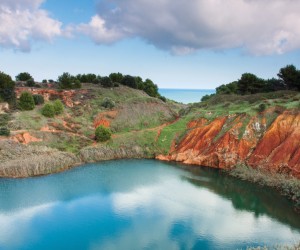Lwazi Capital, a majority black woman owned and managed company, acquired 30% of the issued share capital of Digby Wells Environmental recently, making the multinational environmental and social advisory consultancy compliant with the requirements of the South African Mining Charter and new DTI Codes of good practice.
Nombini Mehlomakulu, managing director of Lwazi Capital, said the business was established to grow and add value to the companies it invests in through working in partnership with company management and other shareholders.
Mehlomakulu is responsible for company strategy and investments prior to which she was international manager, social performance for Anglo American plc. Her responsibilities included working with operations in South Africa, Latin America and Australia. Before that she was the head of investor relations for the Sage Group, a financial service company. Nombini starter her career in advertising and went on to hold executive marketing and communications roles at WIPHOLD and Umsobomvu Youth Fund.
Gregory Simpson sat down with the dynamic businesswomen in Cape Town for more.
Lwazi Capital recently completed a strategic merger with top environmental management firm Digby Wells Environmental. What were the driving factors behind the deal?
The merger was really driven by two things, at Lwazi Capital we were looking for a company that we can invest in and where we can add value on a day to day basis, i.e. grow the business and also help it to achieve its objectives. Secondly it was also about how we build a better society, in one way or the other and that’s why it also appeals to us. The company’s mission is to move us to the world that we desire and we would like to leave the world a better place than we found it.
Mine closures has been a big talking pointing, how can we ensure that companies act in a sustainable manner?
Issues of mine closure, and we are seeing this a lot in South Africa, are the facts thereof. I come from an area which has a lot of labour that serviced the mines for generations and now those people are unemployed. Unemployment hinder economic growth as well as being a health and a social burden that has been shifted to the labour in sending areas. As a country we need to make sure that we provide for mine closure in and around the mines and their surrounding communities. We need to look at what is termed in South Africa as the labour sending areas and make sure that those areas are sustainable going forward and there’s enough economic viability. We need to ensure that the health system is working, the social system is working, the education system is working, the roles, the infrastructure is working. So we need to take into consideration the far-reaching impact of mining in this country.
Investment into South Africa in mining has been a sore point, how can we encourage more FDI?
FDI Investment is a complex issue, there are many factors that obviously are impacting on the mining sector, some of those issues the mining companies can control, some government can control, and others are global economic conditions that are beyond anybody’s control. We should focus on the issues that each and every one of us can control. As mining companies what exactly can control, as government how do we make sure that the legislative environment is friendly enough and is welcoming without necessarily compromising our people. What do we want to stand for as a country, but we do need to make sure that it is working, and meet our deadlines.
The mining sector in South Africa is very fruitful for a lot of female leaders, where do you think that stems from?
In South Africa we’re talking about women’s empowerment and it is a very noble thing to do, however, I wonder in practice if one had to really do a study and do a dipstick and see in the economy how many of the participants are really women, and what impact they have. For example how many listed companies are controlled and run by women? The other spectrum is formal trade —a lot of those are run by women because they need to feed their families. We need to be able to find an equilibrium and not limit women only to the one side of the economy,
we need to make sure that women stay captains of industry and make sure that as women develop in their careers, their sectors that they work in, the industries that they work in, the businesses that they work in allow them as women, as mothers to be able to take part in the economy without abandoning their duties of being mothers.
That’s a very interesting point, where do you create that balance between good mothers and good female leaders?
We’re starting to see globally where companies, for example Google, say that you bring your world to the workplace. They have structures where you have crèches close by, and a support structure for flexi hours that does not necessarily compromise quality and delivery, and people must not confuse flexi hours with compromising of delivery and output. People should be measured on output, not what I term face-time —anybody can sit there, but what kind of result are you getting out of that, and the impact thereof?
So you’re redefining the model of what a working environment looks like?
Not necessarily redefining it, but just making it more relevant, and making it work to people’s needs and desires right now.
Needs and desires for the mining industry in 2016?
The most important thing for the mining industry will be the demand for what we get out of the ground. Once you’re able to get the economies of your world working again there’s enough demand for the metals, then they are able to talk about issues of how many jobs now, how many people do we rehire, and how many other shafts do we open that were closed. It is about job creation, it is about employment, it is about paying people fairly for the work that they do, but also it is about transformation and we cannot run away from the transformation agenda, both in South Africa and globally.
How would you rate the level of transformation in the last 20 years?
Transformation has been very interesting in this country. There is a level of transformation that’s happened and that needs to be applauded, however there is still some ground to be walked, especially in the transformation route, looking at the board roles, who is there, why are they there, what is their portfolio, and is it technical enough or is it still just the support staff.
If you’re only having transformation in the support services that’s not real transformation, that’s not sustainable. We need to make sure
that there’s transformation on the technical level on the core side of the business, but also we need to make sure we create enough of a push and a pipeline of transformation so that when we are old and tired and retired there’s enough people to take this industry forward, and that’s the only way this country will sustainably be able to go forward and flourish.
Are there programmes to facilitate that?
We run a number of internship programmes, we’ve got very bright young people who are sitting there, and I’m amazed at how bright these youngsters are, and we find them all over the country, actually over the continent because we’re not just catering for South Africa, but we’ve got young people in our mining office who are interns, yes there are enough. The critical thing again is to be able to say how do we nurture them, how do we make sure we create an enabling environment, an enabling culture that keeps them in our companies.
And finally, key growth areas in Africa in 2016 for investment?
Oh that is a difficult one. I believe one of the key growth areas will continue to be food. People need to eat, we’ve got food shortages at the moment just globally, and food security is a big problem. So we need to be able to say how do we work with those, we work a lot with agricultural companies, we help them a lot, with their environmental losses and studies and just in their general environmental work so that’s the number one key growth area. I still think Africa will see a lot of growth coming in and out of the mining sector and related industries.
Mining is keeping this continent going, and if we like it or not, it accounts for huge chunks of GDP. Africa is a beautiful continent; tourism will continue to be a flourishing industry and the related industries with tourism. With tourism obviously come other sectors such as your textiles and all of those, because those link and feed into that, so yes, I’m very hopeful for 2016. I am not naive and thinking that it’s not going to be a difficult and a challenging year but like any other challenge we need to be able to open up our minds, look at things differently and find alternative solutions.






